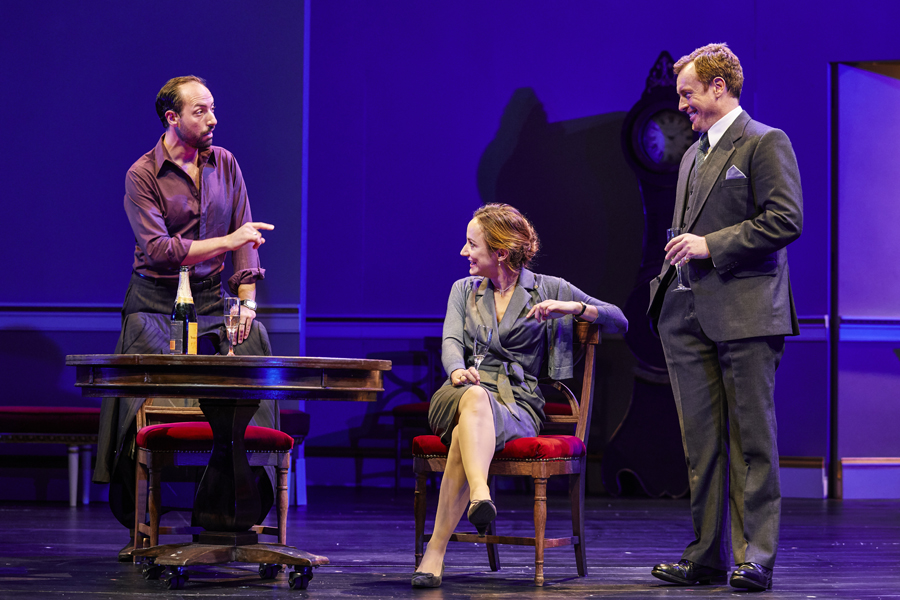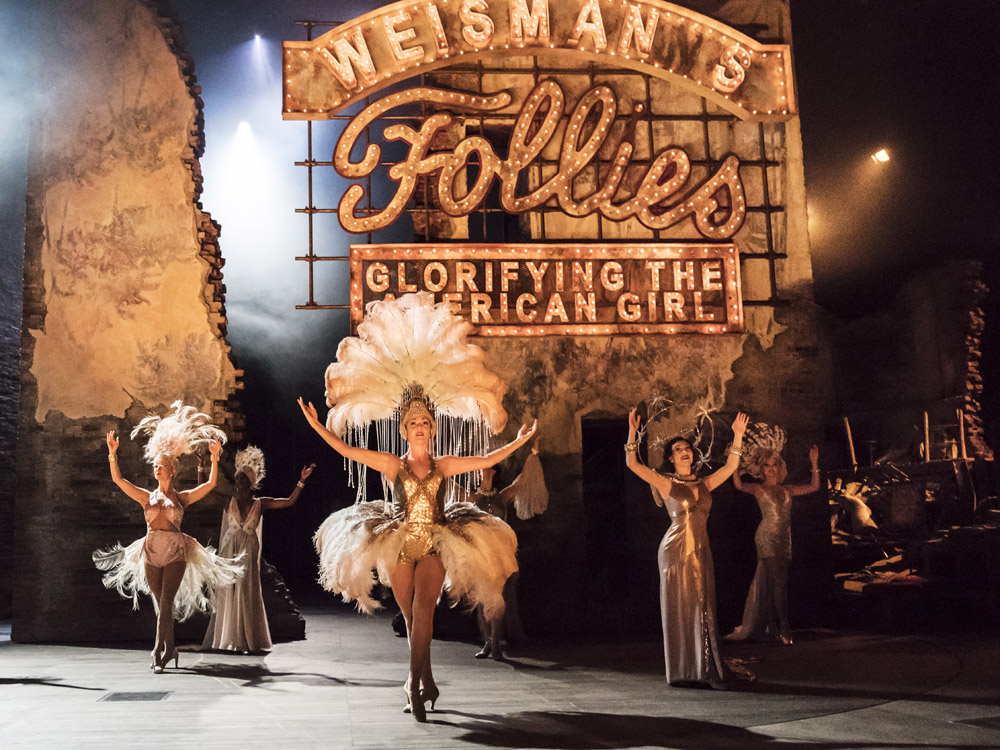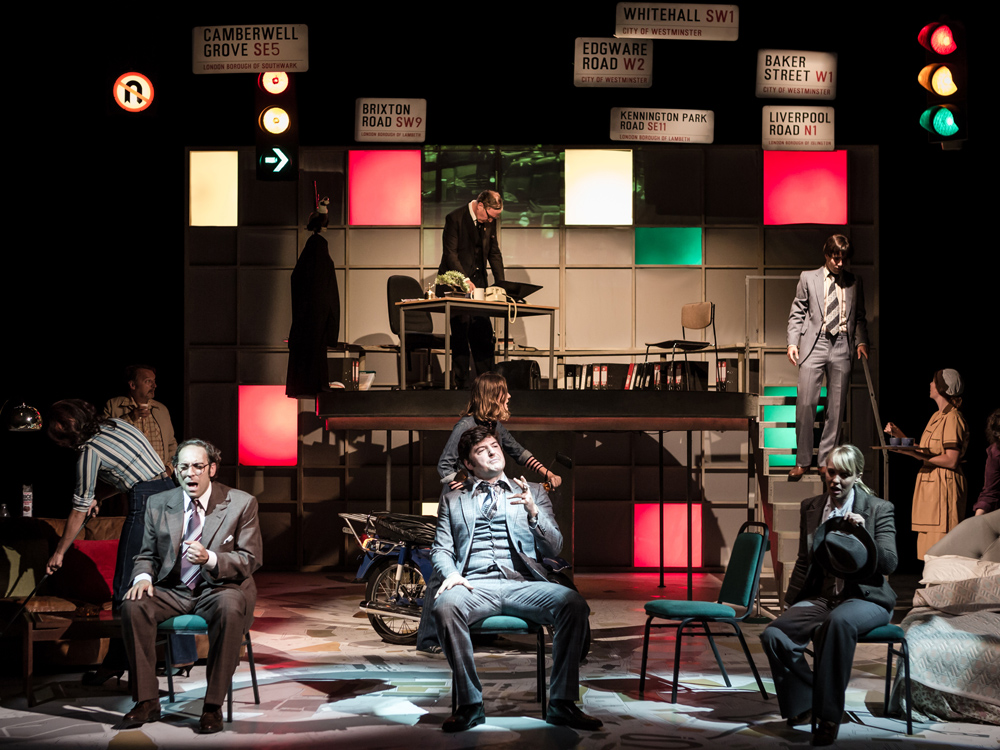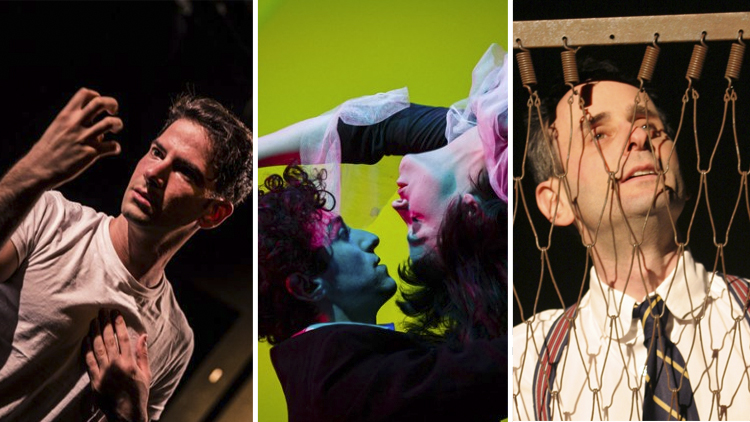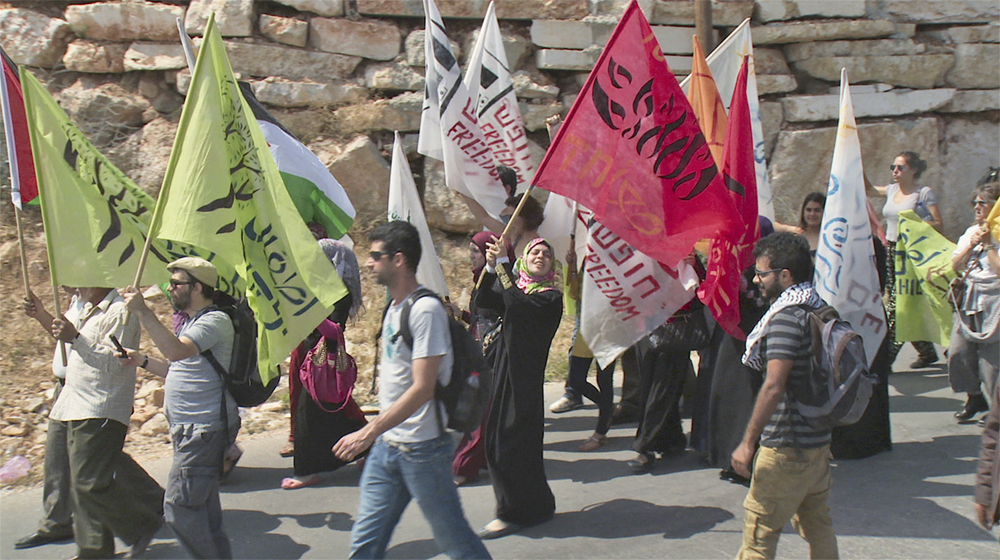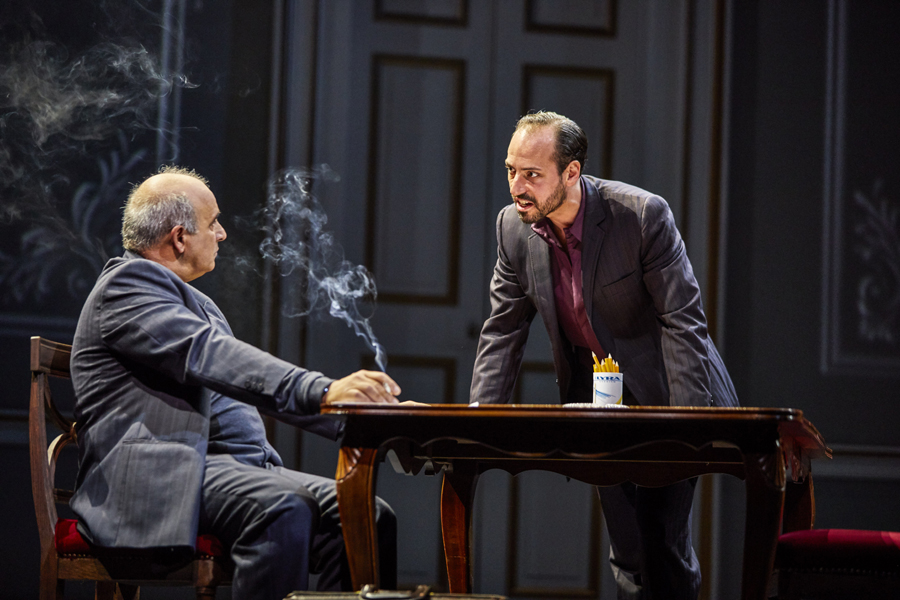 You almost certainly know the venture ends in failure and tragedy but what a gloriously exhilarating and entertaining evening JT Rogers makes of the journey. It's 1991 and the US-sponsored Middle East Peace Conference is going nowhere, with the excluded PLO still ensconced in Tunis. Norwegian power couple Mona Juul, a diplomat posted to Cairo, and Terje Rod-Larsen, her foundation-running sociologist husband, get a chance to see first hand the conflict in Gaza, Jerusalem and the West Bank.
You almost certainly know the venture ends in failure and tragedy but what a gloriously exhilarating and entertaining evening JT Rogers makes of the journey. It's 1991 and the US-sponsored Middle East Peace Conference is going nowhere, with the excluded PLO still ensconced in Tunis. Norwegian power couple Mona Juul, a diplomat posted to Cairo, and Terje Rod-Larsen, her foundation-running sociologist husband, get a chance to see first hand the conflict in Gaza, Jerusalem and the West Bank.
Witnessing a confrontation between a Palestinian stone-throwing youth and a similarly-aged Israeli soldier, they are struck by their similarities. They resolve to try and bring the two sides together in a fluid, non-confrontational way, luring them to a Norwegian country mansion where personal conversations over whisky and waffles work better than the institutional grandstanding of the official peace talks.
Director Bartlett Sher whisks his cast, as crisp as a Norwegian winter, through the back-channeling and clandestine meetings and the associated politics of the peace process that eventually lead to the famous handshake on the White House lawn between Yasser Arafat and Yitzhak Rabin. Sensibly, Rogers focuses on the negotiators and not the hand-shakers and the actors seamlessly break the fourth wall to move the action through time.
Peter Polycarpou invests pugnacious but charming PLO Finance Minister Ahmed Qurie with both warmth and anger, a portrait of a complex and conflicted man, eager for peace but scarred by conflict. His opposite number is Phillip Arditti's cocksure, arrogant and domineering Uri Savir, a typical prickly Sabra (native Israeli), who finds an unlikely friend in Qurie.
Lydia Leonard’s determined, grounded Mona stage-manages the action with Scandinavian cool and style. Monochrome-clad, carrying a drinks tray, at curtain-up you might take her for waitress, till she confides in the audience. Toby Stephens’ flamboyant, self-centred Terje is plausibly likeable and infuriating – and on (peace) message.
The Norwegian contingent includes Foreign Minister Holst (Howard Ward), Mona’s boss and his wife Marianne Heiberg (Geraldine Alexander) who works for Terje. "Well, Norway is a very small country!” as Juul puts it in one of her deliciously dry asides. Ward and Alexander double as Finn and Toril, the domestic staff sworn to secrecy.
The negotiations play out on Michael Yeargan’s set, a curved wall that doubles as a canvas for 59 Productions' effective projections with Scandinavian-sharp lighting from Donald Holder.
As the action rolls through the various crunch points on the way to that handshake, your hopes are equally elated and deflated at the prospect – or not – of peace. The play ends with a brief round-up of the subsequent history, but Terje’s final appeal to the audience to see his beautiful vision leaves you, heartbroken, with the dream of what could have been.
By Judi Herman
Photos by Brinkhoff Mögenburg
Oslo runs Monday 2 October – Saturday 30 December. 7.30pm (Mon-Sat), 2pm (Thu & Sat only). £18-£85. Harold Pinter Theatre, SW1Y 4DN. 0844 871 7627. www.atgtickets.com
Click here to read our interview with writer JT Rogers and director Bartlett Sher from the July 2017 issue of Jewish Renaissance.


